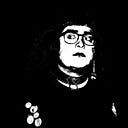The Praxis of Idiocy in Philosophy
Resistances to Institutional Capture
[This is the second piece of this 4-part series on Gilles Deleuze which were originally written for Keith Faulkner’s 2022 seminar on Deleuze]
In What is Philosophy? by Gilles Deleuze and Felix Guattari, the recurrent theme that philosophy is the creation of concepts is extensively explored (Deleuze and Guattari, 1994, 2). In this respect, philosophy is a creative act like art and science, but only philosophy creates concepts (Deleuze and Guattari, 1994, 5). The introduction and the first chapter concern the puzzling nature of philosophy needing a friend as the very condition of the possibility of creating concepts, as not only both the concept and the conceptual personae of the friend risk a concerning appropriation that if we are not clear on what these concepts and friendships consists in — for instance, Deleuze and Guattari draw comedically on a contrast between Plato and his exclusive claim to Idea as well as the rivalries that philosophy faced with from all sides in the reduction of the concept to a promotional product and in the reduction of the encounter of friends to mere exchanges of marketing ideas (Deleuze and Guattari, 1994, 10).
So, philosophy is the creation of concepts among friends, which allows us to elaborate both on the concepts and the friendships that we’ve found along the way. On the one hand, concepts are defined as a fragmentary whole of three components: real language in speech, an existing face, and possible worlds (Deleuze and Guattari, 1994, 15–17). These three components can be accounted for, on the other hand, through the figure of friendship which Deleuze and Guattari dramatize as he describes an encounter with another person whose face expresses fear (existing face), then it affirms this fear by speaking out that “I am frightened” (real language in speech), and through that encounter we acquainted with the existence of a possible world that this friend in the encounter occupies (Deleuze and Guattari, 1994, 17). In this sense, concepts are created with a specific intuition for them in what Deleuze and Guattari call the plane of immanence, which the friend expresses as it lays out the plain where concepts can emerge. And as these concepts come to be, they gain a certain consistency — and this consistency consists of how the concept is able to maintain itself as a fragmentary whole of its heterogenous elements that the concept traverses each of their distinct threshold into a certain inseparability (Deleuze and Guattari, 1994, 20 and 21). At worst, philosophy gives the concept a consistency that merely homogenizes the chaos from whence it came to a point of pure, abstract sterility which Deleuze and Guattari refer to as “pure philosophical instituting” giving off the “illusion of the transcendental, universal, discursiveness and eternal” (Deleuze and Guattari, 1994, 45 and 49).
This heterogeneity that insists throughout the creation of concepts is crucial for Deleuze and Guattari insofar as the elements of the concept are themselves heterogenous and insofar as the plane of immanence is not itself a concept, but the place of concepts in the sense that philosophy is tied up to the impression of something prephilosophical or non-philosophical (Deleuze and Guattari, 1994, 35 and 41). It is here that the figure of the Idiot is crucial as an occurrence that oscillates itself between the prephilosophical and philosophy (Deleuze and Guattari, 1994, 61). For Deleuze and Guattari, the rebelling praxis of the Idiot comes by way of a mutation that its conceptual persona has undergo after its various reiterations. On the one hand, there is the old Idiot who is fixated on pure philosophical institutions such as truth and comprehension. On the other hand, the new Idiot wants the incomprehensible and absurd to be brought back to it (Deleuze, 1994, 62 and 63). This latter figure brings us back to the Deleuze and Guattari’s account of heterogeneity in philosophy as a form of creative resistance, as he writes: “Philosophy thus lives in a permanent crisis. The plane takes effect through shocks, concepts proceed in bursts, and personae by spasms. The relationship among the three instances is problematic by nature” (Deleuze and Guattari, 1994, 82).
References and Citations:
Deleuze, Gilles and Felix Guattari. What is Philosophy? Trans. Hugh Tomlinson and Graham Burchell. New York: Columbia University Press, 1994.
